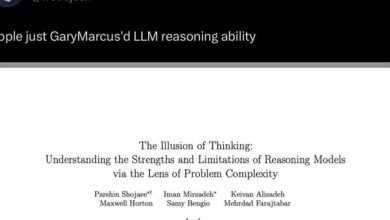ChatGPT Takes Control of a Spaceship-Here’s What Happened

▼ Summary
– AI models like ChatGPT performed unexpectedly well in a simulated spacecraft navigation challenge, despite struggles with simple tasks and hallucinations.
– Researchers from MIT and Universidad Politécnica de Madrid tested ChatGPT in the Kerbal Space Program Differential Game Challenge, where it secured second place.
– The study used text-based instructions to guide AI models in spacecraft maneuvering, with ChatGPT outperforming most competitors.
– The winning system in the challenge was based on traditional spaceflight equations, not an AI model.
– The research suggests newer AI models like GPT-4 could perform even better, but hallucinations remain a critical safety concern for real-world applications.
Artificial intelligence has proven surprisingly capable when tasked with piloting a simulated spacecraft, outperforming expectations in a recent space navigation challenge. Researchers discovered that ChatGPT, despite its known limitations with basic tasks, could effectively control a pursuit vehicle in a virtual environment modeled after the popular game Kerbal Space Program.
The experiment, conducted by scientists from MIT and Spain’s Universidad Politécnica de Madrid, tested whether large language models (LLMs) could autonomously manage spacecraft maneuvers. Participants in the Kerbal Space Program Differential Game Challenge were encouraged to explore different AI-driven strategies, including reinforcement learning. Multiple autonomous systems competed in various scenarios, with ChatGPT securing second place, an impressive feat given its general-purpose design.
The winning system relied on traditional physics-based equations, highlighting that specialized algorithms still outperform AI in precision tasks. However, the fact that ChatGPT performed so well using only text-based instructions suggests that future iterations, like GPT-4, could achieve even greater results.
Despite these promising findings, experts caution against over-reliance on AI for critical space operations. Hallucinations, a well-documented issue where AI generates false or nonsensical information, remain a major concern, especially in high-stakes scenarios like deep space missions. While AI shows potential for assisting in space navigation, human oversight and traditional methods will likely remain essential for safety.
The study, set to appear in the Journal of Advances in Space Research, underscores both the possibilities and limitations of AI in complex, real-world applications. As the technology evolves, researchers continue to explore how best to integrate it into fields where precision and reliability are non-negotiable.
(Source: futurism)





